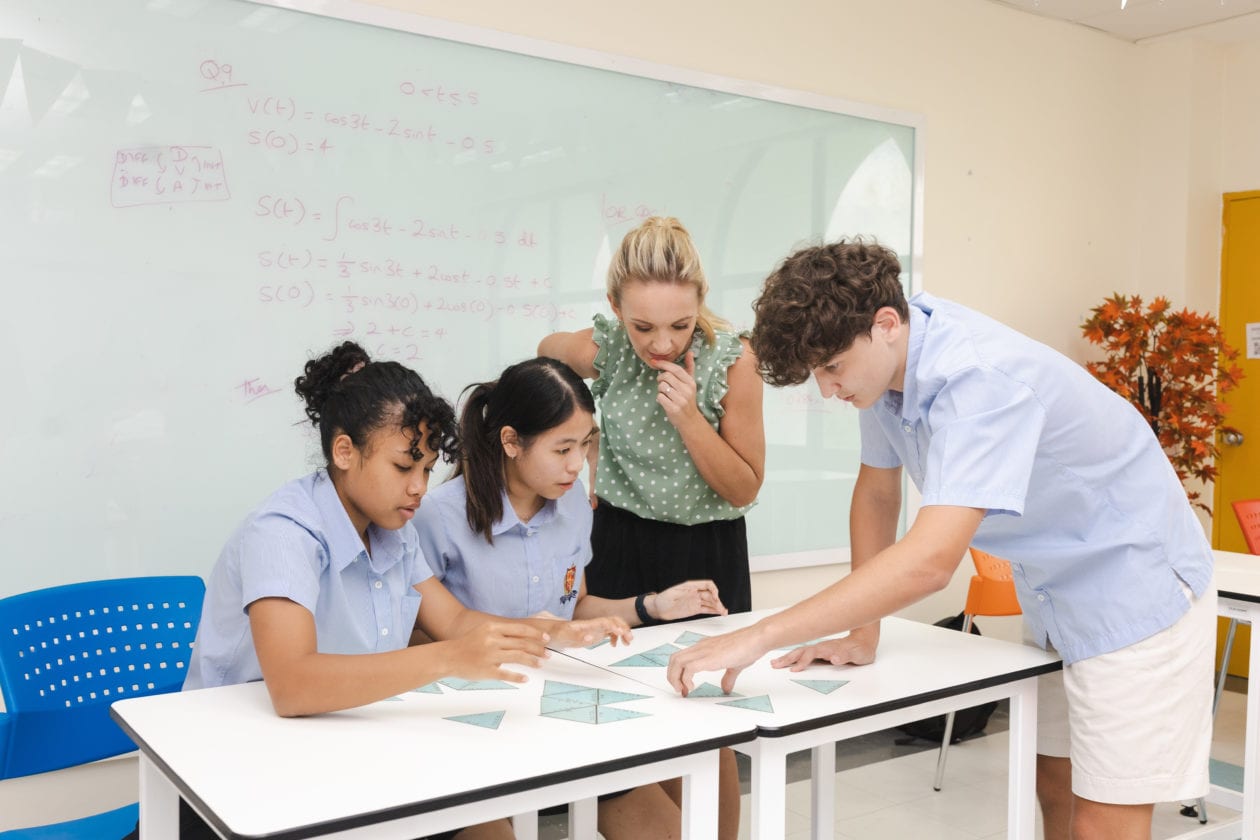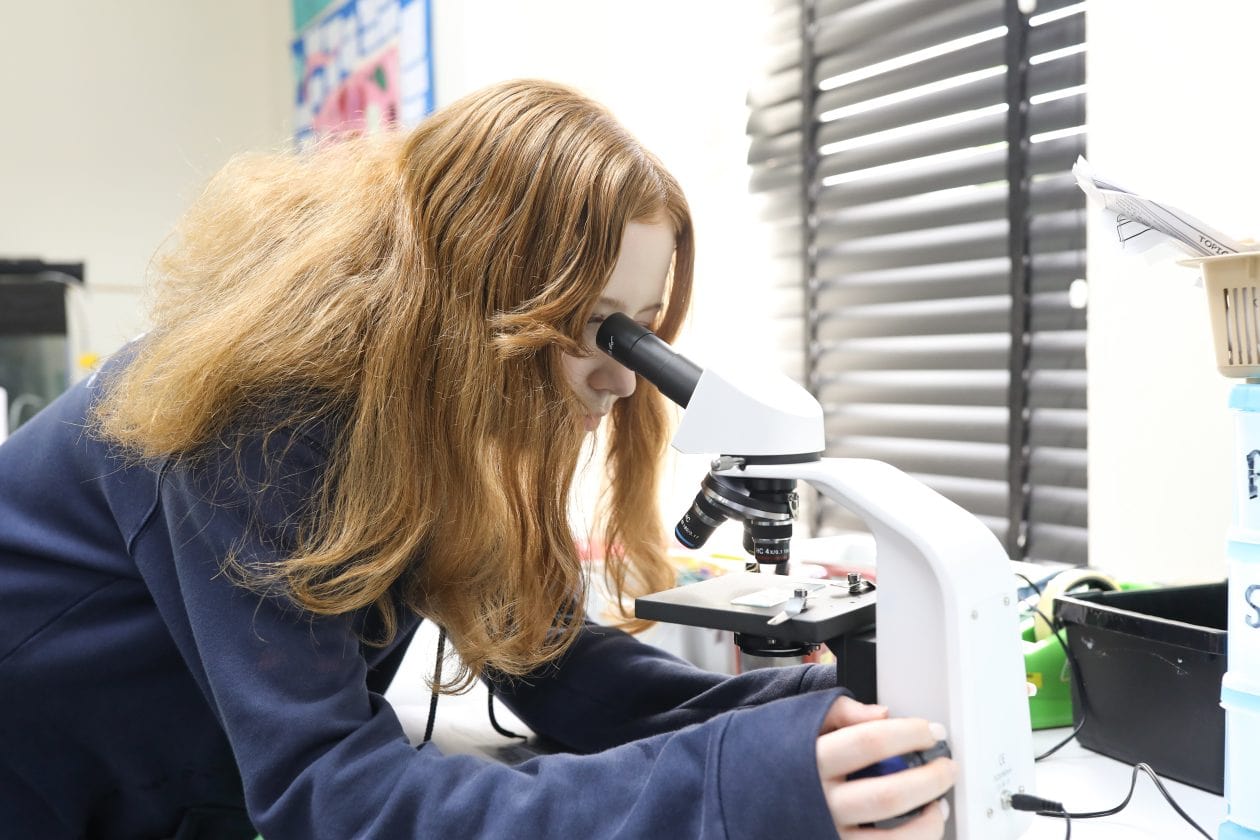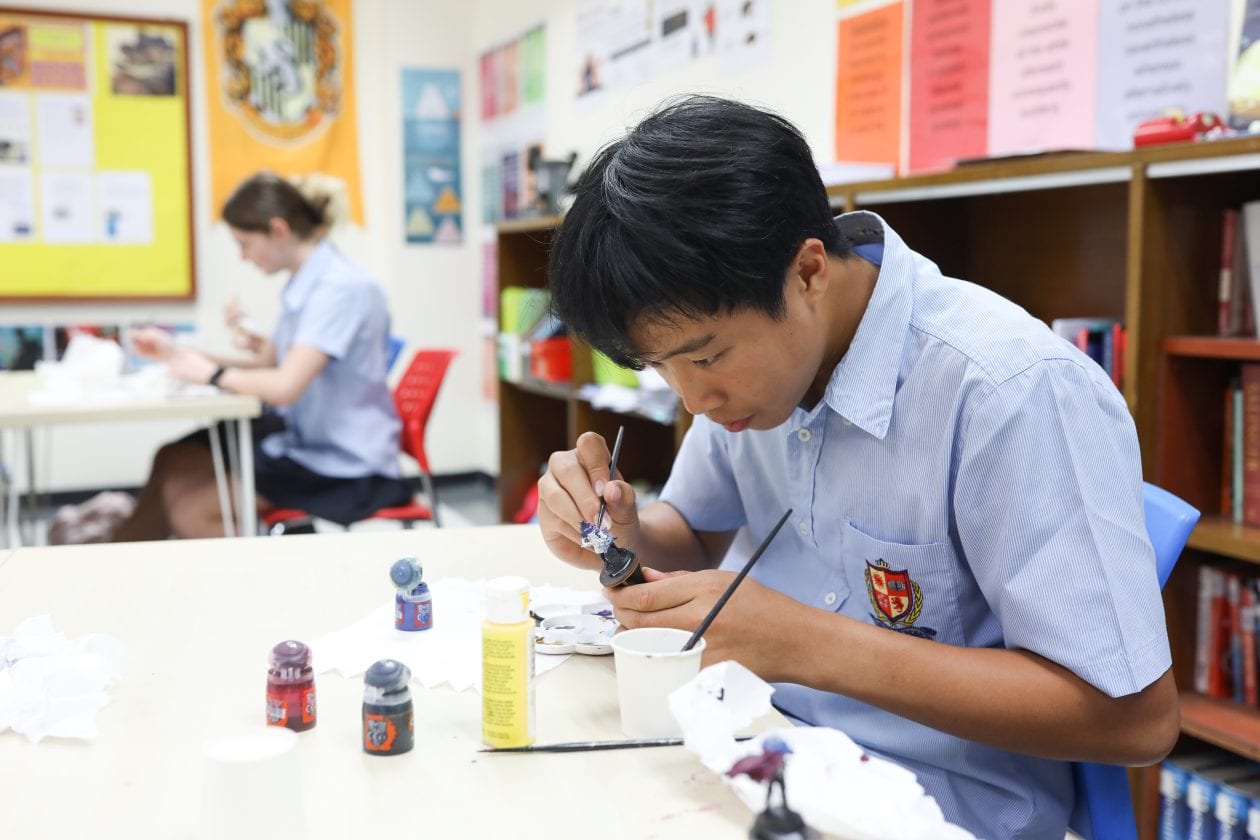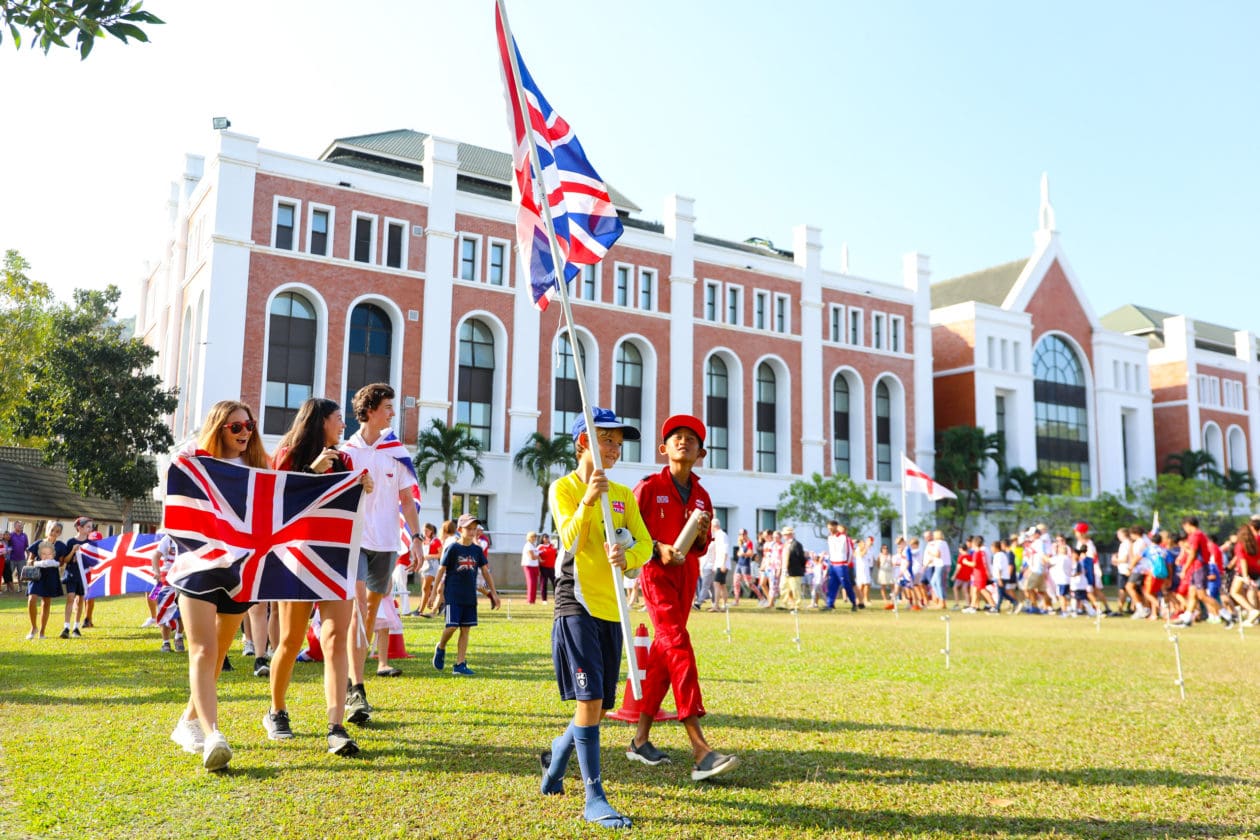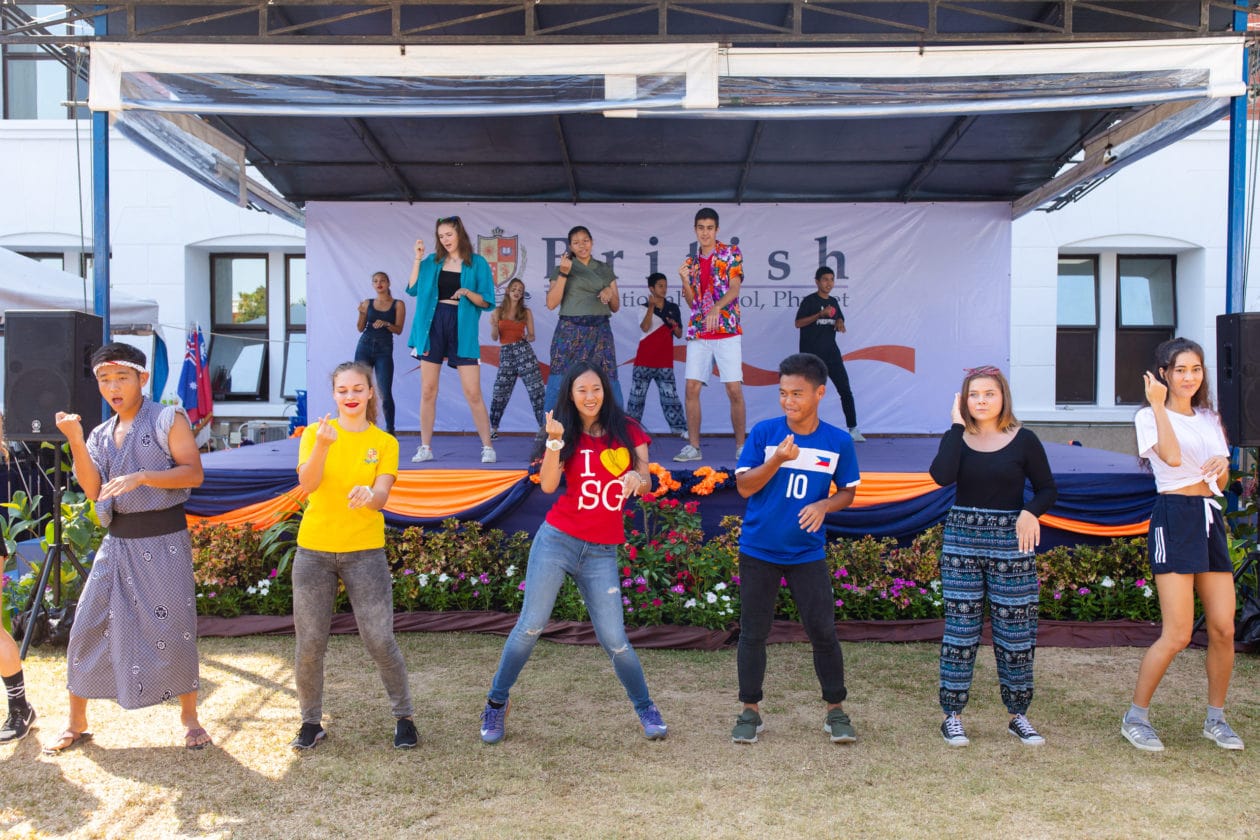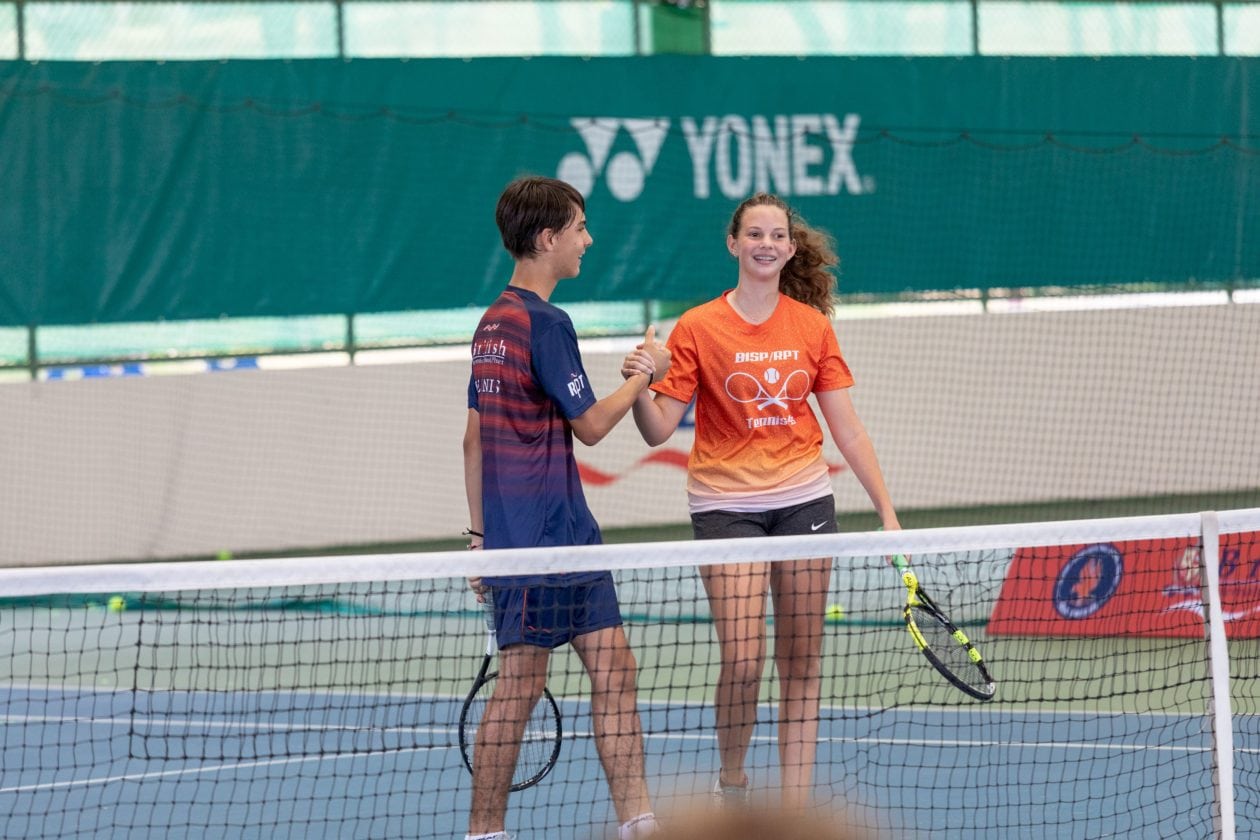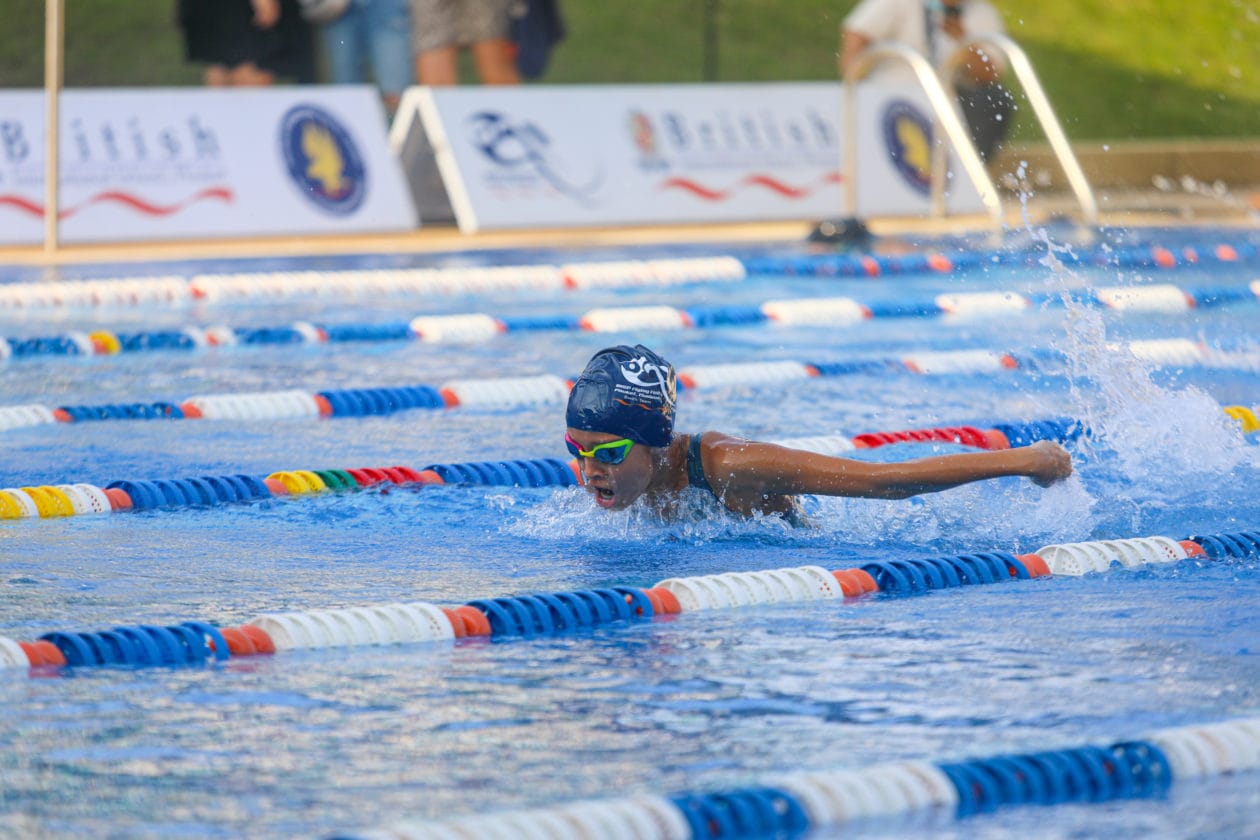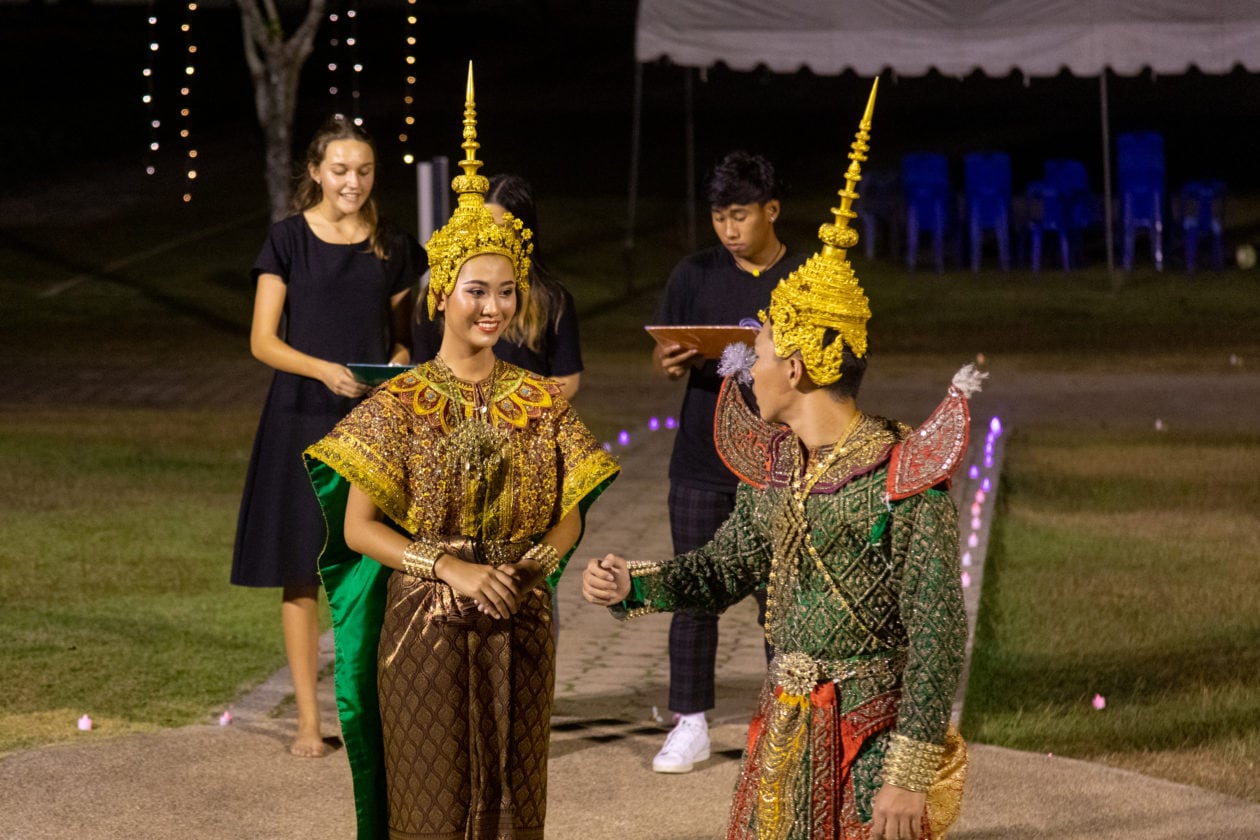Secondary
A dynamic, balanced curriculum for 21st Century learning
The education we provide aims to equip students with the skills and competencies required to flourish in life and prosper within a future labour market. During a period of rapid change in an increasingly globalised environment, we strive to reduce the gap between the skills people learn and the skills people will need to flourish in society.
The curriculum at BISP scaffolds the learning experience for students in an adaptive and responsive way. Our curriculum pathway, and the way in which teaching and learning are facilitated, incorporates higher-order thinking skills, multiple intelligences, technology and multimedia, and multiple literacies of the 21st century.
Such skills and competencies, and an authentic focus on social and emotional aspects of learning, encapsulate a BISP education.
Curriculum Overview
The curriculum in Years 7-9 prepares students for the independent study required for IGCSE and IBDP. The content of the National Curriculum of England is modified to take into account our position in South East Asia. It is inquiry-based with an emphasis on developing skills and competencies, and building firm foundations for the education to follow.
IGCSE qualifications are recognised with high regard by schools and universities worldwide. The international dimension to the IGCSE syllabus allows us to contextualise learning, making it more relevant to the international student experience. Unlike other programmes, IGCSEs are verified through formal external assessment, reflecting the assessment process of the International Baccalaureate Diploma Programme (IBDP) in later years.
Inspired by the International Baccalaureate mission to ‘make a better world through education’, our students relish the breadth and rigour of the IB Diploma Programme, which opens the door to further study in some of the best Universities and Colleges worldwide. Some students choose a more personalised and tailored programme of IB Courses, with fewer subjects chosen to suit educational needs and interests.
The provision of BTEC Sport provides the opportunity for some of our students to follow a more specialist programme of education leading to University placement or employment in a related field. The BTEC programme is a two year, full-time study programme and is modular, meaning students are continuously assessed rather than completion of terminal exams.
The BISP High School Diploma is an alternative pre-university qualification awarded in recognition of a student’s satisfactory completion of the courses undertaken in Years 10 – 13 (the final four academic years of study). All students who achieve the minimum credit requirements will be awarded a High School Diploma in addition to IGCSE and IB qualifications.
Secondary Parent Handbook 2025-26
Middle School Handbook 2025-27
Senior School Handbook 2026-28
BTEC International Level 3 in Sport (Extended Diploma)
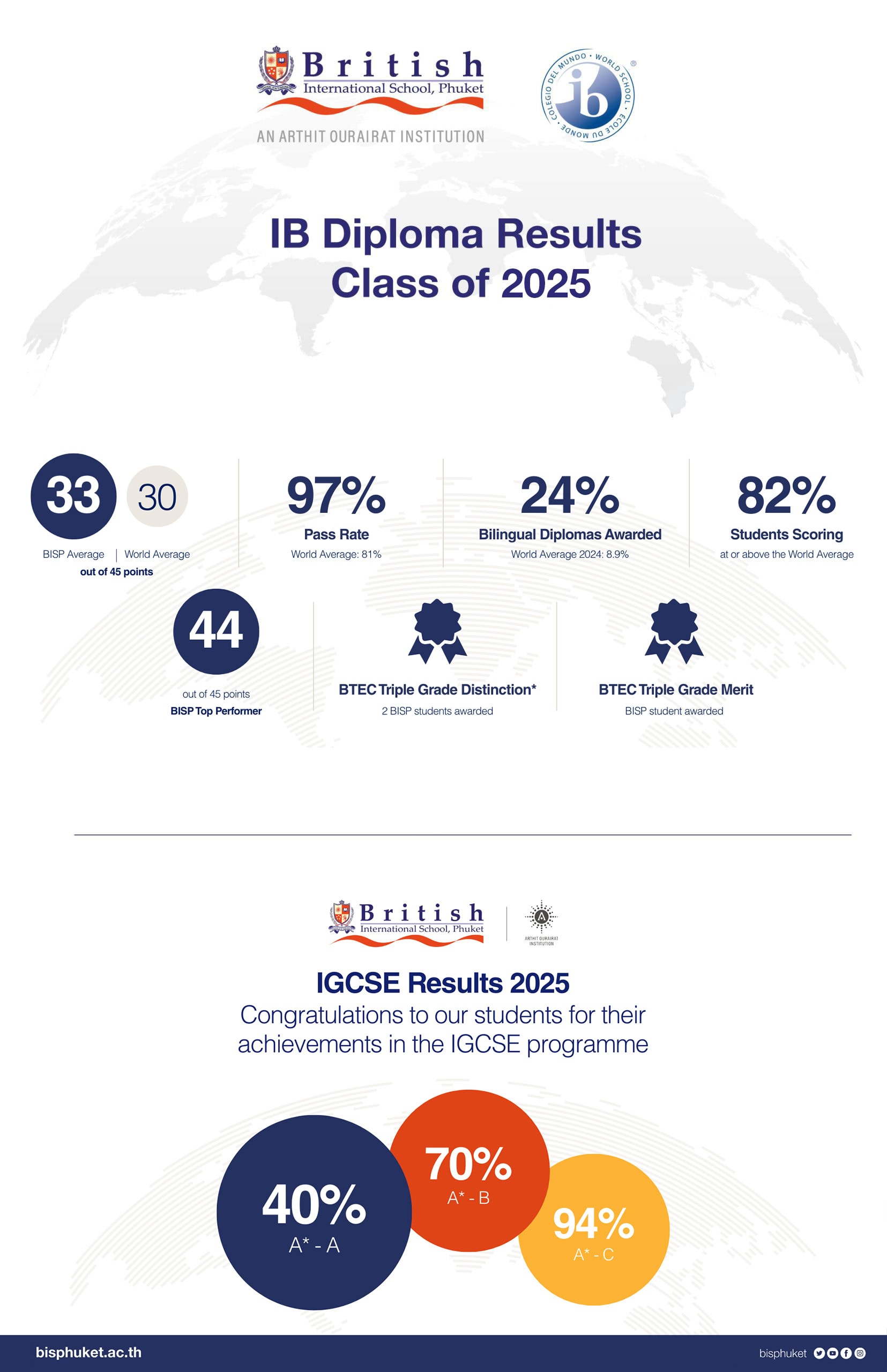
Challenging and inspiring students within an authentic learning community
Connections
Take a moment to reflect on the best teachers that taught you as a child… why were these people so special?
It is likely that in some way your favourite teacher inspired you to think differently, providing you with the cognitive challenge that facilitated long-lasting connections with the subject or discipline. Equally, these people probably inspired confidence in you, opening your heart and mind to new opportunities, and giving you self-belief and determination to live and learn well.
At BISP, learning is facilitated through a multitude of interpersonal and intrapersonal connections. Our teachers nurture the whole child, and in doing so, our students develop natural curiosity, generosity and wisdom to inspire their learning experience. The art of teaching (pedagogy) is crafted to get the very best from our students.
Community
We know students thrive academically by the excellent outcomes that they attain – our examination results are an example of this. However, the process of learning is equally as important as the outcome, and students are encouraged to reflect on their own approaches and attitudes towards learning in a process known as ‘metacognition – or thinking about thinking.
The craft of effective teaching and learning is intentionally shared widely within our community. Indeed the Secondary School has a collaborative approach to sharing best practices, where staff learn from each other, thereby aligning and improving pedagogical approaches for the benefit of our students. Our learning community at BISP is one characterized by a real sense of belonging, and an authentic interdependence between staff and students alike.
The opportunity for students to pursue their passions through extracurricular and enrichment programmes
Our own fond memories of school rarely reference the exam questions we were asked or the contents of a textbook. We often remember the extra bits that enriched our learning experience – the clubs and societies we belonged to; the experiences on school expeditions; or our special moments on the stage or sports field.
The activity and enrichment programme at BISP enables students to follow their interests and passions leading to a wider sense of purpose, fulfilment, and accomplishment. We often find that the students who are the busiest in pursuing their passions at BISP are the most successful in the classroom – a true high achieving yet ‘all-round’ education.
Testimonials
Activities
In an average Term at BISP, Secondary School Students will be offered the opportunity to join one or more of 60 extra-curricular activities. The programme covers a range of pursuits in sport, the arts, and more academically focussed clubs or societies. Our sports Academies offer opportunities to receive instruction from world-class coaches, and this often leads to representation at the highest international level.
To understand the scale of participation and engagement in the enrichment programme and the quality of activities on offer, please consider the following statistics related to just one activity – our Football Academy:
- 5 full-time specialist football coaches.
- 15 different groups per week.
- 5 tiers of provision ranging from Beginners to High Performance.
- 124 Secondary Students participating (84 Boys – 41 girls) – equating to 30% of the Secondary School population.
- 91 participants in the inaugural BISP Beach Soccer festival.
- Host to the largest international football tournament for International Schools worldwide (BISP Soccer 7s).
- A long-standing authentic partnership with the Brazilian Cruzeiro Esporte Club.
The minimum expectation for our students is that they enrich their education by participating in one activity per week. In reality, most students easily exceed this expectation and participate in numerous activities across the week. For more information regarding our activity and enrichment programme, please contact Mr David Berman who is our Extended Curriculum Coordinator.
An international school that celebrates diversity, intercultural understanding and identity
At BISP we consider Intercultural understanding to combine personal, interpersonal and social knowledge relating to oneself and others. Our students learn to value their own cultural perspectives and those of others, through their interactions with fellow students within the BISP community and the experiences (planned or otherwise) whilst at school.
We encourage students to make connections between their own worlds and the worlds of others, to build on shared interests and to understand and respect differences. We believe that students who are able to communicate and empathise with each other, and who demonstrate moral purpose and self-efficacy, are best placed to flourish in our international community and in wider society.
We value the multi-cultural makeup of our school and recognise this through events and celebrations throughout the year, for example, International day; Thai ceremonies and festivals; and cultural observance. We also build opportunities to explore other cultures and identify their strengths and contributions to the world through studies within the curriculum. By observing the differences and similarities among cultures and their values, our students are encouraged to deepen their understanding beyond celebratory events.
The most significant thing in any culture is RESPECT
– A student quote taken from an appreciative inquiry in Intercultural Understanding at BISP 2021
